RN to MSN Informatics Online Degree Overview
With data becoming a critical part of healthcare policy implementation, hospitals across the country are looking for qualified nurses to fill important informaticist roles. If you are a Registered Nurse interested in using the available data to improve care and population outcomes, then earn your Master of Science in Nursing as an Informaticist (RN to MSN, Nursing Informatics).
The Affordable Care Act has brought dramatic changes to the healthcare landscape. With federal funding now tied directly to patient outcomes, the continued viability of health systems depends upon harnessing data points in order to effect positive change across departments. This allows skilled nursing professionals to harness their clinical experience while acting as an analyst and liaison to health system IT.
Nursing salaries for nurse informaticists vary widely in the U.S. and are based upon many factors, including geography, job description, specialty and experience. Healthcare Information and Management Systems Society (HIMSS) conducted a survey in 2022 that found a median salary of $100,000 across the United States, with nursing informatics certification holders generating a higher average salary than those who don't.
Want to learn more? Watch our most recent Virtual Information Session.



